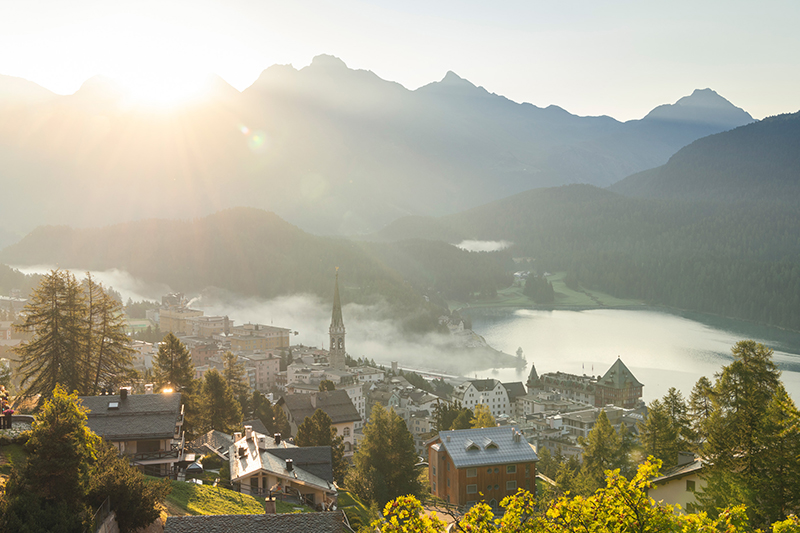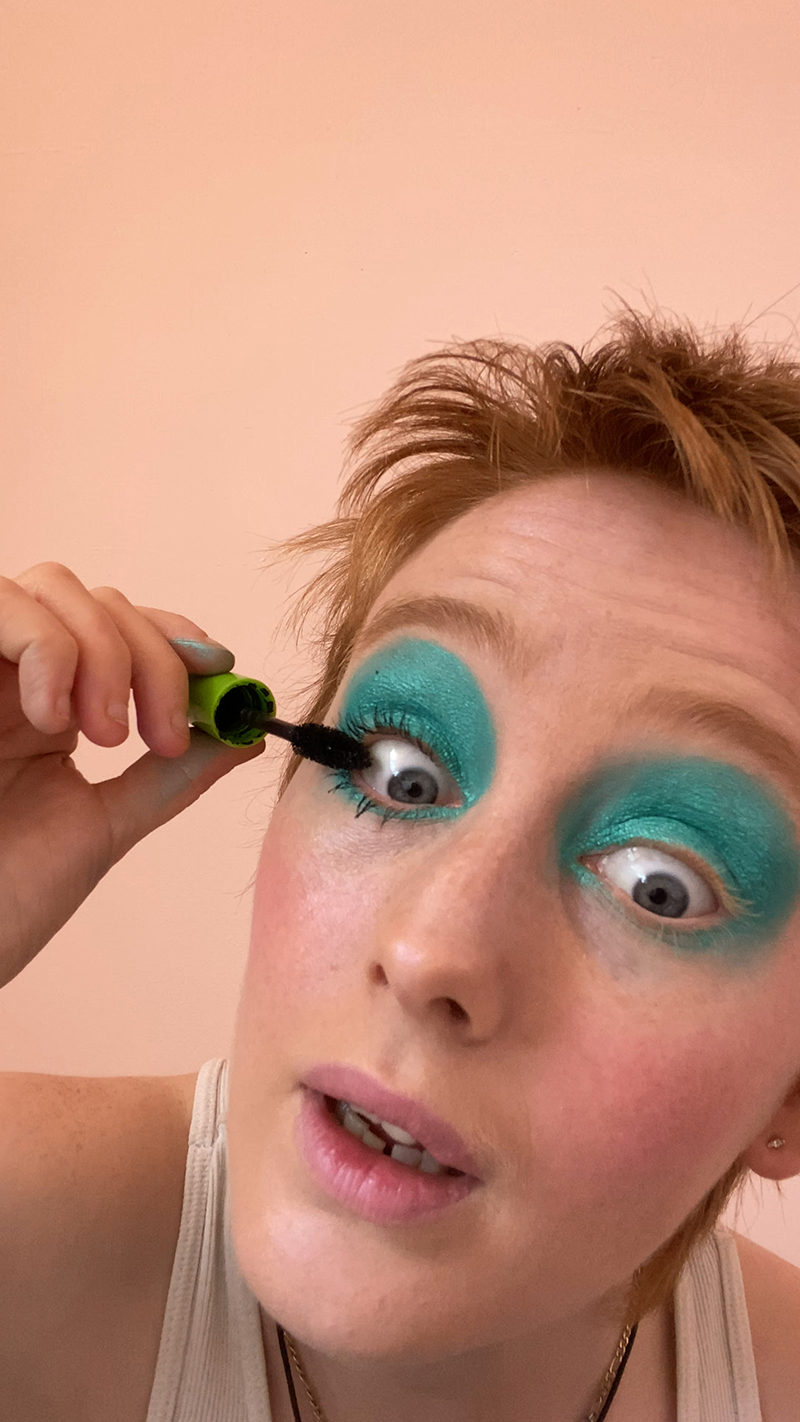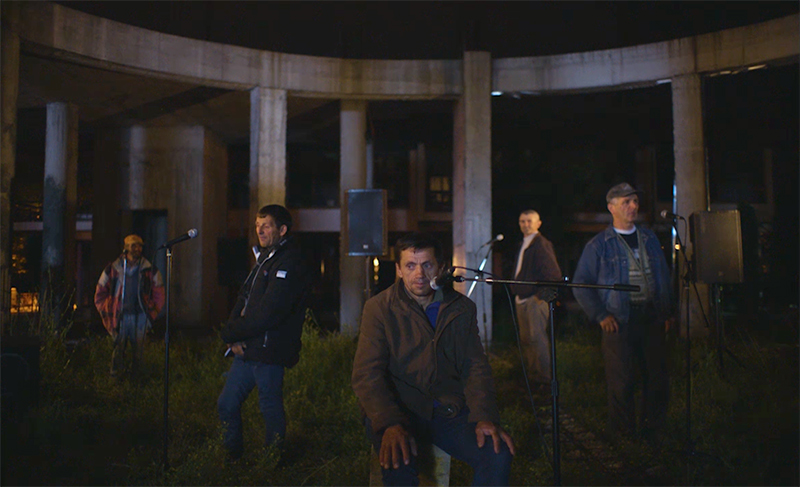by Adela Lovric // Oct. 11, 2022
As a two-time host of the Winter Olympics and the place where winter holidays were supposedly invented, St. Moritz isn’t the most obvious location for a summer art festival. However, this alpine resort town is a favored destination of the cultural elite year-round, and the growing number of art venues and events makes it ever more apparent. An ambitious showcase of arthouse cinema and artist films, the inaugural edition of St. Moritz Art Film Festival (SMAFF) that took place over four days in August has claimed new territory in this developing ecosystem.

St. Moritz // Courtesy of Engadin St. Moritz Tourism, photo by Gian Giovanoli
Curated by Stefano Rabolli Pansera, the festival presented a selection of films and videos united under the theme of ‘Face to Face.’ Conceived partly as a response to the period of social distancing, when people saw each other almost exclusively behind screens or with masks covering their faces, it was an homage to the shared struggles of the past two-and-a-half years. A divergent yet (for the most part) coherent web of thematic strands explored various notions of the face as “the place of humanity”—of identity, memory, socio-political struggles, exploitation, emotion, intimacy, truth and fakery—while making a case for cinema as the ultimate site for its reflection.
The program kicked off with an Italian classic—Pier Paolo Pasolini’s ‘La Ricotta’ (1963), a farcical take on bourgeois arrogance and hypocrisy against the backdrop of Catholic iconography. Conceived as a film within a film in which Orson Welles plays the director of a movie about Christ’s Passion, alongside a debaucherous superstar cast and a starving working-class extra, it mocks classist absurdities in the film industry and the society of its time. Highlighting Pasolini’s deep interest in human faces and what they represent socially and politically, it proved to be an apt entry point for the festival program.
Metacinematic ideas were present through several other films. Johannes Binotto’s ‘Facing Film’ (2017) looked closely at a frame featuring John Wayne in John Ford’s ‘Stagecoach’ (1939), which the Swiss filmmaker and researcher paired with a quote from Grandissement (1921) by Jean Epstein. The close-up revealed another, non-human face—the film roll’s uniquely textured gelatinous “skin” full of “freckles” and “scars” that witness a material entity with a life of its own.
The program also looked into the invisible fabric of social media, namely in ‘The Bots’ (2021) by the artist duo Eva and Franco Mattes. This series of videos borrows the popular online video format of a make-up tutorial to disclose, in a concealed way that bypasses censorship, what happens on the other side of smartphone and computer screens. The scripts, narrated by actors in-between fake make-up tips, are based on interviews with internet content moderators. They reveal the shocking scope of violent imagery that gets published on online platforms and reviewed by people working in highly confidential moderation centers, as well as how this content affects their mental health. An effective play on make-up as a hoax to tell the truth about a job that in a way resembles the work of a make-up artist, it lent SMAFF an important and timely perspective on the reality of today’s dominant media.

Eva and Franco Mattes: ‘The Bots,’ (2021), film still // Courtesy of the Artists and SMAFF
Another compelling thematic strand in the festival’s program were films about masking and impersonating. Stephanie Comilang’s ‘Children of the King’ (2018) is an autobiographical documentary about growing up as a daughter of a larger-than-life Elvis impersonator. As a teenager, the artist started a zine of the same title that later inspired the film. In the hopes of forming a kind of support group that would understand her father’s passion and her own mixed feelings about it, Comilang also shows her encounters with people who had the same familial experience. By focusing on Manila, Tokyo and Bangkok—cities with the highest number of Elvis impersonators per capita—the Filipina-Canadian artist examines a more sinister element of the phenomenon spurred by the US imperialism in Asia.
Among a number of films about marginalized and disenfranchised communities, ‘Rasha’ (2017) and ‘La Prova’ (2019) by Albanian artist Adrian Paci stood out. For ‘La Prova,’ Paci won SMAFF’s ‘Best Film by an Artist Award.’ The video shows a group of Albanian job seekers in Italy repeating the word “Prova” (“Test”) into microphones on an improvised stage in the ruins of an unfinished building. The precariousness of their situation is felt in their insecurity and hesitation, their conflicted facial expressions and gestures. Silent except for the one repeated word, it shows the lonely limbo of living in exile and waiting for the opportunity that may never come. ‘Rasha’ is an excerpt of an intimate encounter with a Palestinian woman who had arrived to Rome from Syria and shared her story with Paci. The video shows moments in which she is silent as her narration in Arabic is being translated. With a poetic and vulnerable approach of the artist, who himself took refuge in Italy in the 1990s, both videos attest to the visible embodiment of difficult experiences that are silenced, not heard, or simply beyond words.

Adrian Paci: ‘Prova’ (2019), film still // Courtesy of the Artist and SMAFF
SMAFF’s program of feature films, short films, video art and other audiovisual material, which included several Swiss and world premieres as well as retrospectives and tributes to major figures, was complemented by talks with artists, filmmakers and experts in the relevant fields. The first festival to bring film and video art to the Canton of Grisons in Switzerland is planned to continue on a yearly basis, with digital events and presentations happening throughout the year. The already announced topic for the next edition—’Becoming Landscape’—promises a rich cinematic and artistic program that can hopefully match the overpowering beauty of the Swiss Alps.
Exhibition Info
Reithalle & Badrutt’s Palace Hotel
St. Moritz Art Film Festival
Exhibition: Aug. 25-28, 2022
smaff.org
Reithalle, Via Ludains 3, 7500 St. Moritz, Switzerland, click here for map
Badrutt’s Palace Hotel, Via Serlas 27, 7500 St. Moritz, Switzerland, click here for map




















